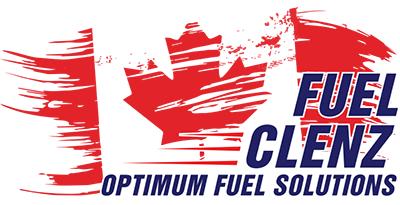Marine
Water in fuel causes problems, especially with Marine Diesel as it will rapidly wear and oxidize steel components. Because of the environment water is prevalent in Marine fuel not only through the natural process of attracting water while being transferred and transported but also through condensation and water ingress. Fuel Clenz is the only treatment that dissolves any water in fuel tanks including sea water and bonds it to the fuel to be burned in the normal manner resulting in enhanced engine performance, less emissions and a reduction in fuel consumption.
Fuel Clenz
- Cures and prevents Diesel Bug (bacterial growth)
- Reduces maintenance costs
- Enhances fuel performance and fuel savings
- Reduces harmful emissions with greater fuel efficiency
- Prevents rusting and corrosion of components
Water in fuel will lead to the formation of Bacteria and Fungus to grow, known as Diesel Bug. It is a major problem in fuel tanks and systems. It is caused by water attracting Micro Bugs that will thrive on the water surface and live off the bio matter in the fuel. Before Fuel Clenz this would have to be treated by nasty biocides that add to the harmful emissions when being burned through. Fuel Clenz is a Bio Static and does not contain Biocides and permanently dissolves water in fuel so there is nowhere for the micro bugs to exist.
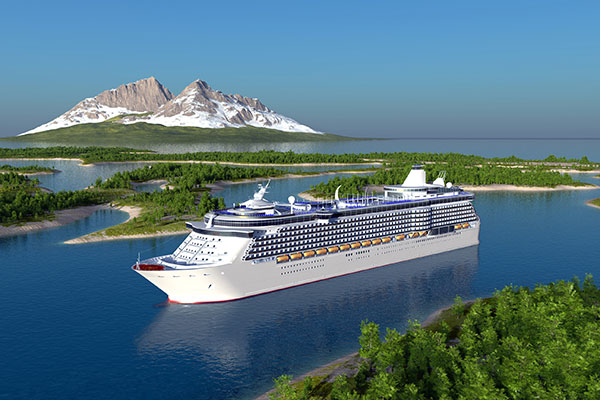

Fuel Clenz has already been called the ‘Optimum Diesel Fuel Treatment’ and is considered by our many customers to be an essential part of any marine vessel’s inventory.
Fuel Clenz is the only diesel fuel treatment that dissolves water in diesel fuel permanently. Once mixed with the diesel fuel in your tank, Fuel Clenz continues working to prevent any further water contamination including accidental or storm ingress in your diesel fuel. Unlike other treatments that separate the water that has to be drained off and disposed of as contaminated water, Fuel Clenz dissolves the water and renders it as usable fuel, much to the delight of Environmentalists, Waterway Managers and Ecologists. Fuel Clenz is the only diesel fuel treatment that does this. Fuel Clenz gets rid of water contamination in Diesel Fuel and ensures the fuel systems and storage systems are unaffected.
Diesel Trains
Wherever possible there has been a big move to switch to electricity to power trains instead of Hydrocarbon and Bio fuels but there are still many Diesel trains in operation in Canada and America as well as throughout Central and South America as well as the Caribbean where it is more practical and cost effective to use Diesel or impossible to get sufficient electricity supplied.
Express trains, Freight trains and trains with Diesel driven generators to create electricity require enormous amounts of Diesel fuel. Therefore a fuel additive that will improve engine performance, cut down on emissions and reduce fuel consumption must be of commercial and ecological interest to train operating companies in Canada, USA, Central and South America and the Caribbean.
Fuel Clenz has been proven to provide all these advantages and, more importantly, eradicate water contamination in fuel which is something oil distribution companies have always struggled to do efficiently.
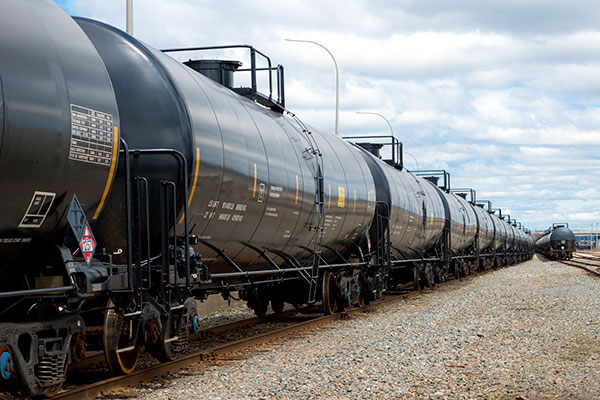
Trucking and Motor Industry
Managing a fleet of vehicles presents its own challenges and can be very expensive with ever changing fuel costs and operating restrictions imposed by Government Legislation that demands cleaner running and regularly maintained vehicles. Adding Fuel Clenz to Hydrocarbon or Bio fuels will improve engine performance in commercial vehicles, reduce emissions and improve fuel consumption.
Improve Performance
Fuel Clenz will eradicate the water content which is always present in fuel by breaking it down at molecular level and bonding it back to the fuel forcing it to burn cleaner at a lower temperature, along with flushing filters clean and keeping injectors in pristine condition.
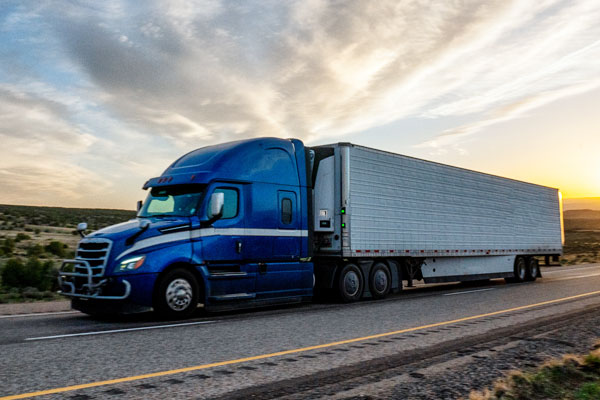
As Fuel Clenz bonds water into fuel, and any water present in for example, Diesel storage tanks or site bunkers does not have to be drained and disposed of as contaminated water, much to the delight of Governments, Water Authorities, Ecologists and Environmentalists. By adding Fuel Clenz before filling the fuel storage tanks, the water is forced to bond to the fuel and can be used in the normal manner, effectively turning the water back into fuel.
Water in Diesel fuel attracts Microbes and Bacterial Fungus that forms Diesel Bug and is especially harmful to engines. Regular use of Fuel Clenz eliminates Diesel Bug permanently.
In tests we have proven that Fuel Clenz can improve engine performance by 9.4%, reduce emissions by up to 70% and improves fuel consumption by up to 10% depending on the application of the engine. Fuel Clenz tests include, FAME, Karl Fischer Coulometric Titration Method (IP386MOD) and Dean and Stark water by distillation method (ASTM D95) all providing conclusive data proving that fuel is free from water contamination once Fuel Clenz is added.
Oil Industry
Fuel Clenz’s exhaustive compatibility testing provided the technology with an acceptance within the industry beyond what could have been expected of a ‘new’ invention.
The compatibility testing protocols used were very similar to those currently required by the aero industry for aviation jet fuel. This testing is also applicable to the oil industry.
During the early development of Fuel Clenz it was suggested by an established scientific figure that one of the reasons for the permanent dissolving of water in oil by Fuel Clenz could be that the water molecule had been broken down enough to cause the migration of its hydroxyl to the long chain hydrocarbon, helping to further encourage a permanent bond of fuel oil and water.
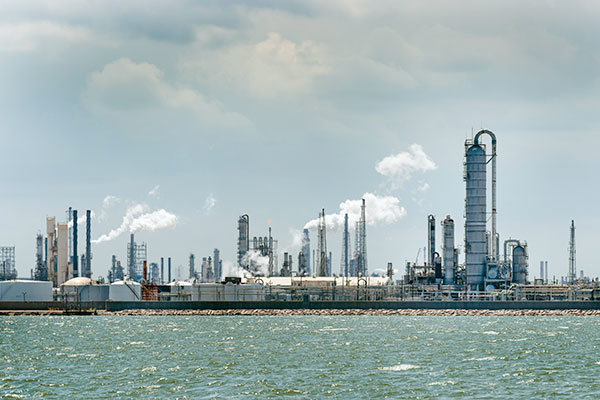
As this in terms of physics was not a research priority at the time and it was not until much later when testing some light crude oil having been contaminated with water and solubilized by Fuel Clenz that it was noted by analysis using the Karl Fischer Coulometric Titration Method
(IP386MOD) and Dean and Stark water by distillation method (ASTM D95), run by the same independent UK laboratory showed a major reduction in detectable water in the oil, to <0.1% water, by these standard oilfield methods. In addition, standard centrifugation of the oil samples yielded no detectable BS&W content of the oil treated with Fuel Clenz. A summary of these test results on crude oil can be made available upon request.
Any additive designed for aviation fuel must be safe and proven not to compromise engine efficiency. Commercial decisions cannot compromise air safety. Fuel Clenz tests include, FAME, Karl Fischer Coulometric Titration Method (IP386MOD) and Dean and Stark water by distillation method (ASTM D95) all providing conclusive data proving that the jet fuel is free from water contamination once Fuel Clenz is added. Fuel ClenZ is a proven fuel treatment that will eradicate water in fuel, prevent diesel bug, enhance engine performance, reduce emissions and improve fuel consumption acknowledging the EASA Certification below .
For aviation fuels, there exists the EASA Certification Specification Subpart-E 560 (d) which states ‘The fuel system must be designed so that any accumulation of likely quantities of water, which may separate from fuel, will not cause Engine malfunctioning’.
Fuel Clenz Performance Testing and Compatibility Checks
A recent test program for Fuel Clenz looked at one type of North Sea Crude Oil (30°C API gravity crude) and observed that, by adding Fuel Clenz at a cost effective dose rate to this crude oil, while ensuring the correct mixing and dispersion of the chemical is done, the chemical technology was proven to solubilise up the majority of 5% water into that crude oil. The details of the test program in summary follow.
Test Program A1: Firstly, two 100 mls samples of North Sea crude each had 5% tap water added at room temperature. One was kept chemical free while the other had Fuel Clenz chemical added at a fixed dose rate and was stirred in to solubilise the oil & water. Another 100 mls of the same oil was included as the control. These samples were then subjected to analysis via IP386MOD (Karl Fischer titration) in an independent UK laboratory. The blank oil sample gave a result of 0.09%wt/wt water while the Fuel Clenz test sample gave a result of only 0.63%wt/wt water, with the untreated sample giving a water content of 4.60%wt/wt. This showed that over 86% of the water was no longer detectable by this method and this could be improved by enhanced sample mixing. Centrifugation of a repeat set of oil samples yielded no detected water or BS&W (Base Sediment & water). These initially encouraging results were followed by a new set of laboratory tests.
Test Program A2: We prepared a series of samples for testing which consisted of two modified formulations of Fuel Clenz, one which had previously tested successfully (Tests A1). These consisted of two samples of each category, one being the first modified formula, which was tested originally via the Karl Fischer method and the second which contained additional modifications to see if it could prove more efficient on this crude oil. Again there were blank oil samples, using the same North Sea oil with 5% tap water added and then the same again but treated with Fuel Clenz, using each of the two formulations. As previously discussed the method of mixing or introduction of Fuel Clenz to the crude oil is crucial as it is impossible to view the solubilising process due to the opaqueness of the oil.
The compatibility studies and corrosion tests in the attached documents, although applied to fuel oils, all document the reactions and benefits of the technology in various situations. For crude oil production systems, in oil export pipelines with relatively low water cuts, the potential for the Fuel Clenz product to be multi-functional, in that it will help to reduce bio fouling, to reduce general corrosion and improve flow characteristics, is why this technology is unique in our view and ready for use in the Oil and Gas industry.
Aviation
In every aspect of design specification whether it be on Airframe fuel systems or engine fuel systems the aviation industry knows that one of its biggest problems is ingress of moisture / water, as it can and does lead to catastrophic failures in aircraft engines.
Any additive designed for aviation fuel must be safe and proven not to compromise engine efficiency. Commercial decisions cannot compromise air safety. Fuel Clenz tests include: Def Stan 91, FAME, Karl Fischer Coulometric Titration Method (IP386MOD) and Dean and Stark water by distillation method (ASTM D95) all providing conclusive data proving that the jet fuel is free from water contamination once Fuel Clenz is added. Fuel Clenz is a proven fuel treatment that will eradicate water in fuel, prevent diesel bug, enhance engine performance, reduce emissions and improve fuel consumption acknowledging the EASA (European Aviation Safety Agency) certification below.

For aviation fuels, there exists the EASA certification Specification Subpart-E 560 (d) which states ‘The fuel system must be designed so that any accumulation of likely quantities of water, which may separate from fuel, will not cause engine malfunction’.
*(Fuel Clenz is being evaluated by Transport Canada and the FAA for use in Aviation Fuel.)*
When things go wrong
According to an AAIB (Air Accident Investigations Branch) report, “Water is always present, to some extent, in aircraft fuel systems and can be introduced during refuelling or by condensation from moist air which has entered the fuel tanks through the tank vent system”
On January 17th 2008 flight number BA038 a Boeing 777 aircraft, crash-landed short of the runway at Heathrow airport. A 2008 AAIB interim report stated, “The investigation has shown that the fuel flow to both engines was restricted; most probably due to ice within the fuel feed system. The ice is likely to have formed from water that occurred naturally in the fuel whilst the aircraft operated for a long period, with low fuel flows.” The report further stated, “Not only from the users point of view do serious problems occur but water, being non combustible causes bacterial growth ‘diesel bug’ which is particularly evident in shipping, fuel storage (bunkering) and other aspects of refining.”
Although Jet fuel is sterile when it is first produced because of the high refinery processing temperatures it quickly becomes contaminated with microorganisms that are always present in air and water. Since microorganisms need free water to grow, microbial growth is concentrated at the fuel-water interface. Some organisms need air to grow (aerobic organisms), while others grow only in the absence of air (anaerobic organisms). In addition to food (fuel) and water, microorganisms also need certain elemental nutrients. Jet fuel can supply most of these.
Higher ambient temperatures also favour microbial growth. Other factors affecting microbial growth and its control are discussed in ASTM D 6469, Standard Guide for Microbial Contamination in fuel and fuel systems.
Agricultural and Leisure Machinery
Whether you are enjoying the freedom of a motor bike, motor home, living on a house boat, breaking waves with a jet ski or operating farm machinery that has seasonal usage, Fuel Clenz is a fuel system treatment that is going to be a tremendous asset to ensure smooth and reliable motor engine performance.
Regular use of Fuel Clenz will prevent damage from water contamination in fuel and improve engine performance, cut down on emissions and reduce fuel consumption but the most important benefit you will receive is that Fuel Clenz dissolves water in fuel so you won’t have to drain the fuel tank or dispose of contaminated fuel due to water ingress.

Power Plants
Fuel Clenz is the perfect product for treating Diesel fuel stored in large Bulk Storage Tanks which are required for Power Generation Plants and Facilities. Especially in isolated operations such as in Nunavut, Northwest Territories, The Yukon, etc. in Northern Canada as well as the remote island situations in the Caribbean. These Bulk Storage Tanks are located and operate in some of the most extreme conditions in the world from extreme cold and inclement conditions to extreme heat and humidity.
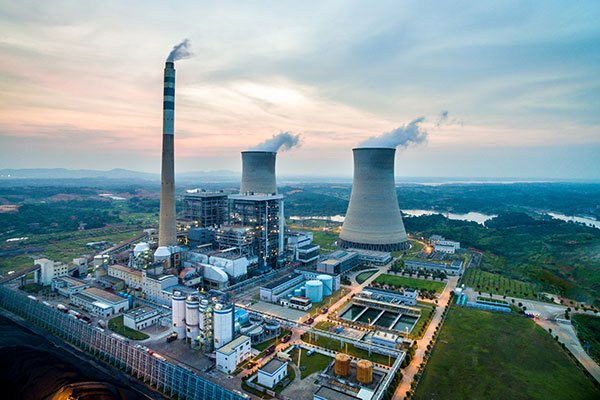
These isolated Power Generation Plants and Facilities also suffer from the ability to receive consistent shipments of clean Diesel fuel. Due to their isolated locations in Nunavut, Northwest Territories, The Yukon, etc. As well as Islands throughout the Caribbean Diesel fuel shipments are either provided annually or monthly and are transported by ships/tankers by sea. This transport process usually results in unwanted condensation and water contamination, which creates the ideal situation for Fuel Clenz usage and the associated benefits environmentally, efficiency wise and financially. If you operate a Power Generation Plant or Facility please do not hesitate to contact us and our representatives will show you the many benefits of Fuel Clenz.
